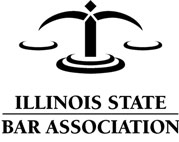Cook County Suburban Nursing Home Negligence and Abuse: How to Protect Loved Ones
Posted: February 23, 2016
At MLG, we represent victims of nursing home abuse and negligence and their families. Unfortunately, the trend we see amongst our clients is that many nursing homes and rehabilitation centers are understaffed and have inadequately trained staff. As a result, patients are neglected and left to fend for themselves, which ultimately leads to injuries, including but not limited to decubitus ulcers, fractures and malnutrition.
Also, many families of these victims are under the impression that abuse and neglect of the elderly only happens in nursing homes located in low income areas. However, negligence and abuse permeates throughout the state’s nursing homes, regardless of location or the patient’s economic status as is seen in our cases.
Most of our clients are middle class, elderly folks who were working professionals before they retired. They had homes and raised their families in the suburbs. They usually are widowed and their kids are left to take care of them. Unfortunately, many families do not have the time, money, energy or space to accommodate skilled nursing care or rehabilitation inside their homes. So they are left with one option – nursing home facilities. Almost all of my clients tell me that they took tours of many homes and picked the one which appeared new, fresh and inviting. They were given the impression that their loved ones would be cared for and looked after based on their needs. However, they learn after their loved one gets injured that this was not the case.
MLG has one client whose father had surgery on his hip and he was brought to recover at a rehabilitation facility located in an affluent northern suburb. While he was staying at this facility, the nurse failed to use a slide board to transfer him from his bed to his wheelchair, and dropped him, which resulted in a new fractured hip and pelvis. However, after he fell, the facility’s staff let him sit in his bed for over a week with a fractured hip and pelvis before he was taken by ambulance to a local hospital. As a result of this negligence, our client’s father passed away shortly thereafter.
MLG has another client, whose mother suffered from dementia and went to a rehabilitation facility located in a northern suburb, to recover from a femur fracture. Her fracture made her a fall risk and someone who would be more susceptible to pressure ulcers. The facility’s staff failed to conduct a skin assessment and reposition her for nearly two weeks after she was admitted. While she was at the facility, she developed several pressure ulcers on her feet, buttock, etc. These ulcers were later deemed permanent due to the extent of the wounds and their duration. These wounds likely led to her sepsis, which is an infection caused by bacteria entering through open wounds on the body. She also suffered from moderate-to-severe protein calorie malnutrition. As a result of this negligence, she eventually died, with one of the causes being septicemia.
Granted, the state passed the 1979 Illinois Nursing Home Reform Act, which was an achievement for the time. Gradual improvements have been made to the original law like restrictions on using restraints and psychotropic drugs on nursing home residents, but the number of Illinois Department of Public Health (IDPH) nursing home surveyors continues to drop, which makes nursing homes more prone to abuse and negligence because the consequences are limited.
Fortunately, the nursing home reform law has increased staffing requirements for skilled nursing homes and nursing homes must report all resident deaths to the local coroner and Illinois Department of Public Health. But more needs to be done as far as increasing staff per patient, increasing qualified and adequately trained staff, and increasing accountability at nursing homes through various means, including getting nursing homes to obtain better liability insurance, which is regulated by state insurance departments.
If you feel a loved one has been mistreated, you can call or file a formal complaint with the Illinois Department of Public Health, http://www.idph.state.il.us/pdf/CCR_ComplaintForm.pdf, which will assign your complaint to a surveyor in the field. This surveyor will typically make an unannounced visit to the facility, and then the surveyor will follow-up via a phone call and letter.This is a good first step to take. However, if you feel a loved one has been abused or neglected at a nursing home, it is important that you contact a qualified personal injury attorney as soon as possible. Contact the Law Office of Martin L. Glink today at 847-394-4900.





